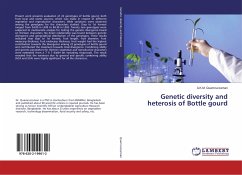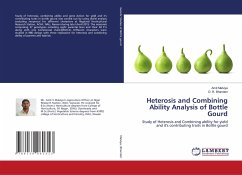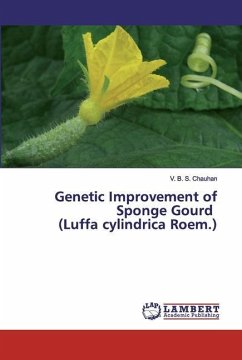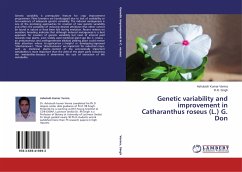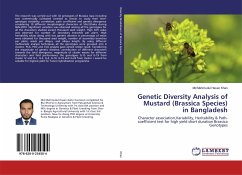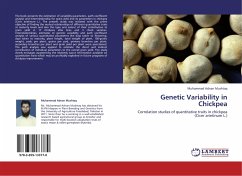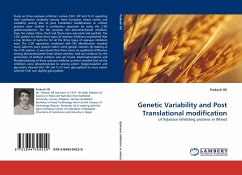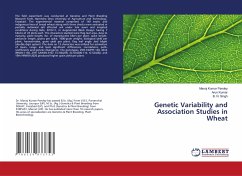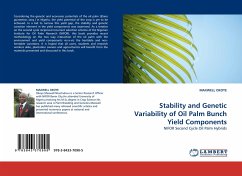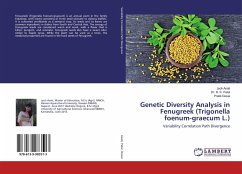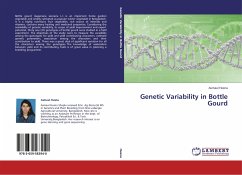
Genetic Variability in Bottle Gourd
Versandkostenfrei!
Versandfertig in 6-10 Tagen
36,99 €
inkl. MwSt.

PAYBACK Punkte
18 °P sammeln!
Bottle gourd (Lagenaria siceraria L.) is an important home garden vegetable and widely cultivated as popular winter vegetable in Bangladesh. It is a highly nutritious fruit vegetables, rich source of minerals and vitamins, contains many healing and medicinal properties. Considering the availability of genetic variability, its scope of yield improvement and export potential, thirty one (31) genotypes of bottle gourd were studied in a field experiment. The objectives of the study were to measure the variability among the genotypes for yield and yield contributing characters, estimate genetic par...
Bottle gourd (Lagenaria siceraria L.) is an important home garden vegetable and widely cultivated as popular winter vegetable in Bangladesh. It is a highly nutritious fruit vegetables, rich source of minerals and vitamins, contains many healing and medicinal properties. Considering the availability of genetic variability, its scope of yield improvement and export potential, thirty one (31) genotypes of bottle gourd were studied in a field experiment. The objectives of the study were to measure the variability among the genotypes for yield and yield contributing characters, estimate genetic parameters, association among the characters and their contribution to yield. There was a great deal of significant variation for all the characters among the genotypes. The knowledge of association between yield and its contributing traits is of great value in planning a breeding programme.



